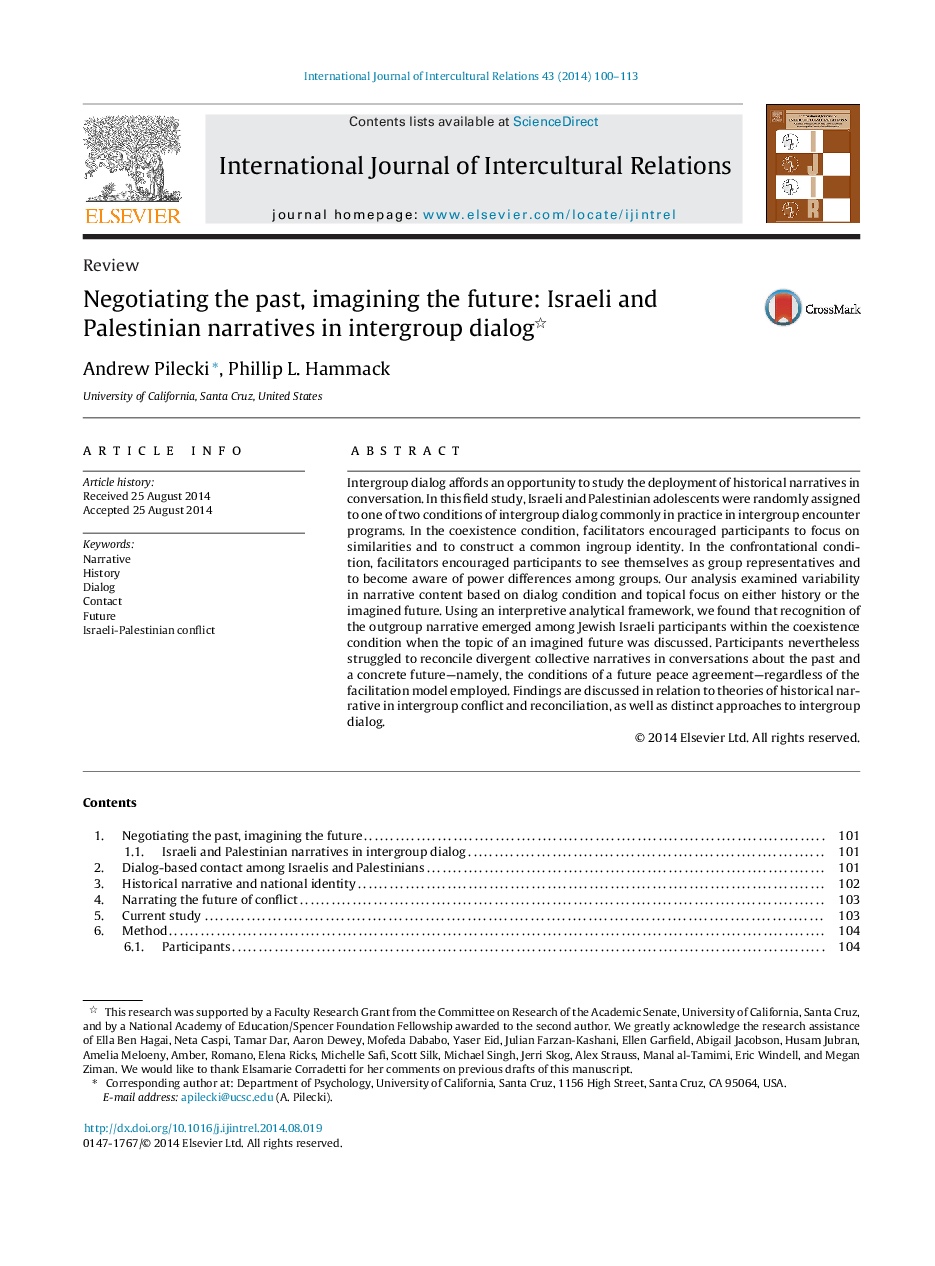| Article ID | Journal | Published Year | Pages | File Type |
|---|---|---|---|---|
| 947040 | International Journal of Intercultural Relations | 2014 | 14 Pages |
Intergroup dialog affords an opportunity to study the deployment of historical narratives in conversation. In this field study, Israeli and Palestinian adolescents were randomly assigned to one of two conditions of intergroup dialog commonly in practice in intergroup encounter programs. In the coexistence condition, facilitators encouraged participants to focus on similarities and to construct a common ingroup identity. In the confrontational condition, facilitators encouraged participants to see themselves as group representatives and to become aware of power differences among groups. Our analysis examined variability in narrative content based on dialog condition and topical focus on either history or the imagined future. Using an interpretive analytical framework, we found that recognition of the outgroup narrative emerged among Jewish Israeli participants within the coexistence condition when the topic of an imagined future was discussed. Participants nevertheless struggled to reconcile divergent collective narratives in conversations about the past and a concrete future—namely, the conditions of a future peace agreement—regardless of the facilitation model employed. Findings are discussed in relation to theories of historical narrative in intergroup conflict and reconciliation, as well as distinct approaches to intergroup dialog.
